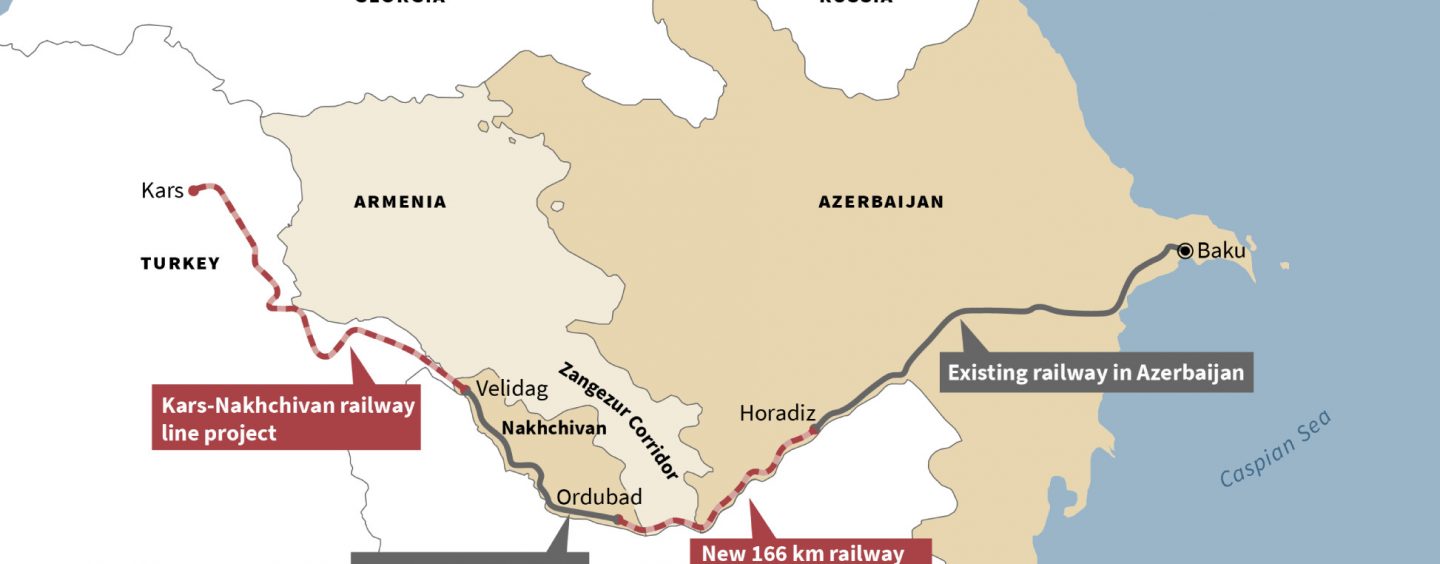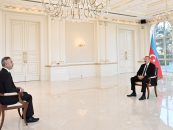Turan Agency: In a recent meeting between Iranian President Ibrahim Raisi and Azerbaijani President Ilham Aliyev in Tashkent on November 9, President Raisi expressed Iran’s satisfaction with the liberation of Karabakh, emphasizing that the region had returned to its ancestral territory within Azerbaijan. President Raisi conveyed Iran’s readiness to support the restoration and reconstruction of Karabakh, offering engineering and technical assistance through Iranian companies. He also highlighted the improving transport and transit situation between the two nations, particularly emphasizing the significance of the Agbend route across the Araz River, which enhances connectivity between Azerbaijan, Iran, and Nakhchivan, addressing longstanding concerns in the region.
President Raisi underscored the growing cooperation and positive trajectory of relations between Iran and Azerbaijan, despite efforts by some countries to disrupt their ties. He expressed confidence that these relationships would continue to thrive.
Meanwhile, Russia has acknowledged substantial progress in selecting optimal railway and road communication projects but has noted that the issues are yet to be fully resolved. Maria Zakharova, the press secretary of the Russian Foreign Ministry, emphasized the importance of adhering to the provisions outlined in the trilateral statements made at the highest level on November 9-10, 2020, and January 11, 2021. These statements dictate that the control of transport communication between Azerbaijan and the Nakhichevan Autonomous Republic should be overseen by the Border Service of the FSB of Russia.
Political commentator Sadreddin Soltan weighed in on the topic of the Zangezur corridor, shedding light on shifts in Iran’s approach to its relations with Muslim countries over the past year. He noted that Iran had transitioned from a strategy involving attacks and destructive activities in Muslim countries to a new approach characterized by diplomatic engagement and efforts to normalize relations. Key developments included the resumption of diplomatic ties with Riyadh, warming relations with the UAE, steps toward normalization with Egypt, and attempts to engage with the Taliban. Soltan highlighted the growing channels of communication between Iran and these nations, potentially driven by concerns related to access to water resources and the Taliban’s influence.
Soltan also observed that Iran was moving towards normalization with Turkey. However, he noted that tensions still persisted in Azerbaijani-Iranian relations, primarily due to Iran’s failure to meet the conditions set forth by Azerbaijan. Notably, the construction of a road bridge from Azerbaijan to Iran across the Araz River, part of an Azerbaijani-Iranian intergovernmental memorandum, represents the only step contributing to the normalization of these relations. This project aims to establish new communication links between the East Zangezur Economic Region of Azerbaijan and the Nakhchivan Autonomous Republic through Iranian territory.
In summary, the meeting between Presidents Raisi and Aliyev in Tashkent signals Iran’s willingness to support the reconstruction of Karabakh and further strengthen its ties with Azerbaijan. Despite the progress made in the selection of communication projects in the region, problems remain, and they are complemented by the geopolitical dynamics in the wider Middle East.






